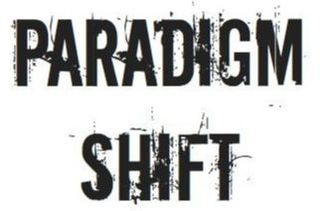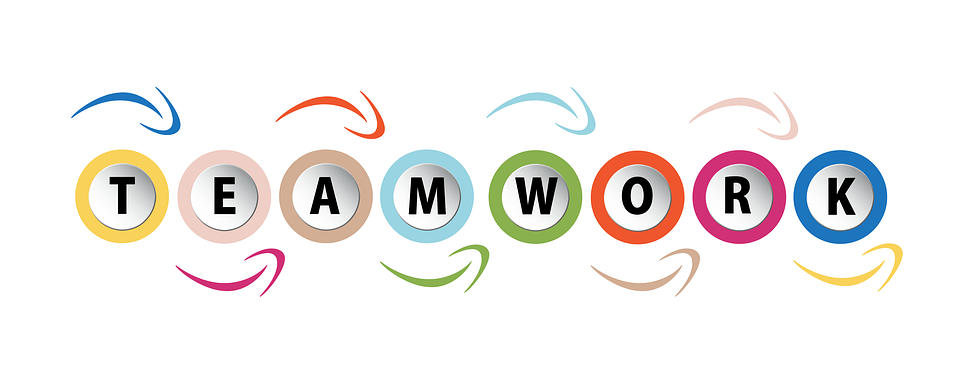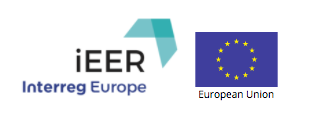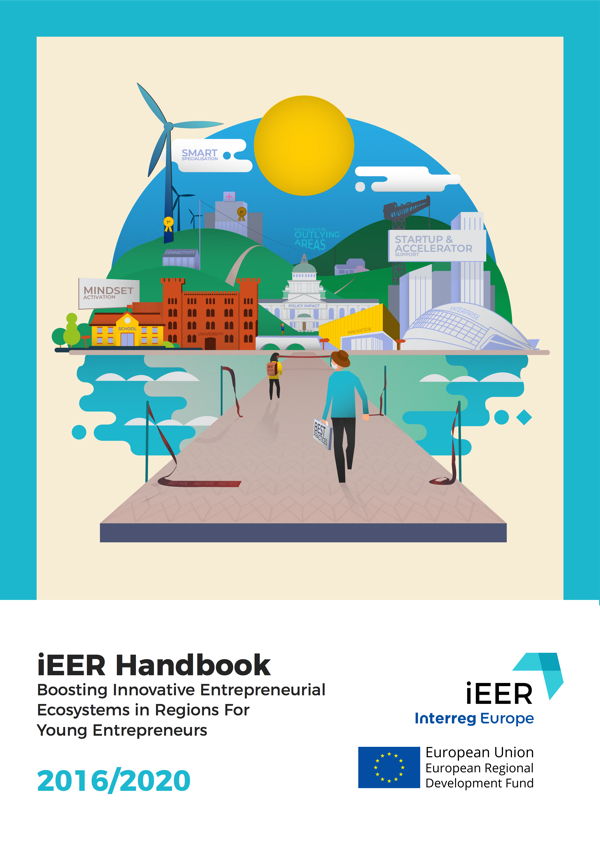|
Why Growth Academy Most of business education if focused on educating people for being a good resource at some specific functions in an organization or at managing an existing organization, but not for creating organizations. Also most entrepreneurship education is educating about creating a known business model to a know market, where innovation based entrepreneurship (ie startups) are about creating unknown business to unknown market AND building organization along the way. Availability of entrepreneurship education First off, we can start by the observation that actually there are very limited availability of proper entrepreneurship education available globally. Especially for innovation driven entrepreneurship and especially compared to how valuable innovation driven entrepreneurship is for the societies and economies everywhere. In simple terms we can say most of education is targeting to train resources to various existing organizations needs, while innovation driven entrepreneurship is aimed to create new value contributing organizations. Timing and relevance Having covered the availability of existing education, where even most of this existing education is only available in higher education levels and mostly consumed at rather young age, being available to those who can afford it or those who qualify for the entry criterias. Considering the value of such education to societies at large, this should be much more inclusive. At the same time, statistically most successful business founders are people in their forties and in many ecosystems on average there is a higher percentage of innovative entrepreneurs among first and second generation immigrants, including Silicon Valley. Also in practise big part of education/knowledge needed to build an innovation driven business and organization, needs to be available and learned at the time when actually building it. So that things learned can be used right when needed. Learning for later, is only partially beneficial compared to learning it, when really needing it. While there are tons of materials and knowledge freely available online, about creating and growing a startup, most new and potential future entrepreneurs, startups and other people new to startup ecosystems, don’t know how and where to start, what they should focus on, when to do what, and how to identify what’s relevant now and next. So they don’t know what available knowledge online is relevant, and how all these things connect with local support, trainings and services available in their ecosystems. Also even among most of the people in ecosystem supporting entrepreneurs, have only partial understanding and limited experience on how to actually build a successful startup from nothing, due naturally it is hard to accumulate such knowledge and experience and it also takes long time, being also dependent on various sources to refer to when guiding others along the way. But even with very well established and know methodologies like lean startup, that only cover small part of all the various things that innovation driven entrepreneurs need to solve while building their business and organization. And there are also a whole question before lean startup phase on how to select the idea to start validating. There are many other similar things related to building and scaling businesses that as such, can be considered as “right advice” to share for new entrepreneurs. But because there is also the question of “when specific advice is relevant” - “A right advice at the wrong time, is wrong advice.” It’s not only about entrepreneurs, trainers and mentors Beyond the educators, trainers, mentors and business advisors that are directly supporting and training new entrepreneurs, also managers in support organizations and those organizations funding support and educational activities, need to have a better way to identify, be aware and make decisions regards to what is actually educated and trained with their resources. This is a reason why more holistic framework of key activities is needed. A framework that also help balance the focus between building a business and building an organization. It is necessary for the whole startup ecosystem to work on common language and framework to describe, track, measure and guide entrepreneurship and innovation from an “Ideas to Products and into Growing Businesses” and from “Talent to Teams and to effective Organization” in balanced manner. It also needs to be an “open framework”, that can be developed and adapted by all the parties that are utilizing it in their operations, in a coordinated way. Where if there is sound reasoning and common agreement with actual data indicating that something needs to be changed, it can be changed. This is only possible when there is “a known common thing” in use, to actually make changes to. And also to measure later that changes actually made it better. Growth Academy curriculum Growth Academy together with broader startup ecosystem development framework, is designed to tackle these issues above. A curriculum build from a globally neutral perspective, as a common language and structure, how various existing leading global knowledge, methodologies etc. link to each others in a logical manner, filling gaps between this existing knowledge and by providing sound reasoning for all topics covered within the curriculum. Growth Academy aims to minimize “reinventing the wheel”, by leveraging all the key knowledge captured by multiple serial entrepreneurs, mentors and advisors over the years, as well as best methodologies developed to various parts of building a successful innovative business and effective organization from nothing to success. Where key focus is in putting all these pieces in right order, divide them into clear modules based on phases of business and organization development and provide various levels of detail on each these development paths, to cater for different levels needed depending on the needs and roles of the audience in question. Ie. new entrepreneur just starting, team member looking to join a venture, policy maker, advisor of specific phase in the overall journey etc. Scaling entrepreneurship education by leveraging benefits of online and offline In addition to tackling these various issues, by having and making such education available to help create a known common language for potential, new and existing entrepreneurs and amongst all ecosystem actors, - it is also key to make it available in multiple ways and also connect it logically with all support and services available in local ecosystem. Our Canadian partner Startup Continuum is specifically working on eLearning platform and application in ways that leverage digital learning scalability, reach and 24/7 availability benefits, combined with building strong connections to offline training, education, mentoring and broader ecosystem services in each ecosystem locally. We as Startup Commons are just starting a webinar based series to deliver entire Growth Academy curriculum online and will combine this with training of trainers program, to open the curriculum to motivated trainers anywhere for deeper learning of the Growth Academy curriculum, to become able to train and support all new people entering startup ecosystems about how innovation driven entrepreneurship works and how successful startups are created and scaled up. All webinars will be also video recorded and build up to permanent learning resource with related materials, templates etc., along with dedicated section for trainers to access all Growth Academy training materials and having online community for support by Startup Commons and their peers. This training of trainers program will cater for three levels of actors;
Key element tol collaborations in all levels, including eLearning programs and platform is the startup development phases based "open framework" that Growth Academy curriculum is based on. The growth and success of any ecosystem is dependent of constant flow of new people entering the ecosystems, navigating it successfully and effectively utilizing what is available and/or contributing to what is needed the most. Building common language and framework to be utilized and developed together is the best way to reduce waste in resource use, lower risks and reduce randomness, to accelerate all aspects within ecosystems. Once eLearning platform is in use, it will be capturing data from various aspects of use (learning in general, problem topics, where learning stopped and why, what are most requested offline support needs etc.). Startup Commons’ mission is to scale entrepreneurship and innovation by empowering ecosystem development with global knowledge and tools for data-driven development. However, we face an interesting obstacle that stands in the way of our mission.
Startup ecosystems lack ecosystem operators. Sure, policy makers, economic development organizations, core support providers, and key individuals focus some of their efforts on ecosystem development. Some more, some less. Unfortunately, pretty much all ecosystems lack dedicated and sustainable resourced ecosystem operator teams that are solely focused, from a neutral perspective on growing and addressing problems in their regional startup ecosystems in a systematic manner over the long term. And doing so with focus on data and KPI’s and leveraging modern digital technologies. Top down or bottom up? When it comes to creating/developing ecosystems, there seems to be always a question and “two camps” with views of what would work. This is especially true at early maturity stages. The reality is that both are needed, and eventually they need to meet in the middle. To cover both, energy and speed with long-term, sustainability & neutrality. This means connecting the top down “announcement strategy”, policy-making & support funding spending, with bottom up motivated/committed/operative people with digital expertise. It is important to organize into a dedicated and neutral entity (PPP?). Next, you must give a mandate, resources, and clear a big target with milestones & KPI's to match. Once you have put the mandate and resources in place, you must let the selected team do their work with support and governance by ecosystem key actors. How so? When Ramon Lozano came on our podcast, he discussed how he is working to develop the startup ecosystem in Conroe, Texas. Operating as the Entrepreneur In Residence for the Conroe Economic Development Council (CEDC), he describes his primary role as “planting the seeds” for ecosystem growth. Although he works for an economic development organization, he does not think that his organization should govern the ecosystem. Ramon believes that ecosystem governance should be in the hands of the entrepreneurs who make up the startup community. In other words, ecosystems should be governed by the people and for the people. In accordance with his beliefs, Ramon is forming the Conroe Regional Entrepreneurship Guild, a group of entrepreneurs who will oversee ecosystem development. Although the CEDC will “plant the seeds” for growth, their long-term strategy is to hand ecosystem development operations over the the Conroe Regional Entrepreneurship Guild, which will serve as the region’s ecosystem development team. Public-Private Partnerships for Ecosystem Development As the Conroe example illustrates, ecosystem development involves collaboration between the public and private sectors. Policy makers and economic development organizations often need to prioritize startup ecosystem development and lay the foundation for community self-governance. In addition to forming the Conroe Regional Entrepreneurship Guild, the CEDC is conducting surveys, pursuing industry cross-pollination initiatives, and building a research park to “plant the seeds” for startup ecosystem growth. Since the CEDC possesses resources and credibility, it is ideally positioned to perform the early-stage tasks that are essential to ecosystem development. Eventually, the CEDC hopes to pass its data and learnings to the Conroe Regional Entrepreneurship Guild so that the regional startup community can begin to govern itself. However, the transition does not mean that the public and private sectors can stop collaborating. As the ecosystem development team continues collecting data and identifying barriers to ecosystem growth, they will most-likely need to make policy recommendations, mobilize resources, and collaborate on projects with the public sector. Ecosystem development is undeniably a public-private undertaking. And to really master the digital side of ecosystem connectivity, to make all relevant data flow in real time for all ecosystem development and actors needs in various levels. - Finally, the digital silos in various ecosystem applications need to be smartly connected as well. This ain't no small task that can simply be solved with bottom up approach or left to solve on it’s own. But it is doable. As long as there are proper entity in place to take on the challenge, proper financial and skills resources in place with a mandate to operate from all ecosystem key actors. What can you do to form ecosystem operator teams?
Recently it was reported that Business Plan Tool in Helsinki was hacked and some persons in social media raised a question about the role of Startup Commons in the matter. The solution was not implemented or hosted by Startup Commons or any other company in its group. Startup Commons licenses its concepts and models for several parties where licensees are responsible to make implementations and provide the service.
It is not our role to comment on the actual case on behalf of other parties, but we feel it is important to highlight, what Startup Commons is doing, what is Startup Commons’ business model and position in the context. Startup Commons mission is to scale entrepreneurship and innovation by empowering ecosystem development with global knowledge and tools for data-driven development. Our strategy is to facilitate, develop, distribute and license global knowledge, tools, digital solutions and help to enable data flow for and between Ecosystem Operators. Startup Commons licenses its assets, including development frameworks, concepts, software, documentation, metrics, branding and provide consulting and advisory services related to these assets to startup ecosystem development. In addition Startup Commons promotes best startup support related practices, applications and concepts of others and can co-develop existing or new shared assets to be licensed to other startup ecosystems. Licensing is provided based Creative Commons, Open Source or Shared Source licenses. Due scalability reasons Startup Commons may choose to operate only limited test and pilot projects and does not take direct responsibility to implement or operate actual live services for a ecosystem. Regards to Business Plan Tool case in Helsinki, Startup Commons has not implemented or programmed the software version in the question or hasn’t been responsible for hosting the software, managing database or managing the servers running the software in question. Business plan tool by Startup Commons is based on the same concept written in different programming language and different architecture, and is not the same software. For Startup Commons’ own software versions we have also strict data security requirements and e.g. work to be compatible with GDPR. The use of “Startup Commons Finland” -name has been a part of license arrangements, not Startup Commons Business Plan software. Also all licensing agreements related to use Startup Commons name and assets in Helsinki, ended on 2nd of October 2017. We believe that a globally effective and sustainable approach is a hybrid model of shared resources with dedicated local operator with responsibility to operate core services and coordinate connected services, where in digital services, data is always owned and controlled by rightful owners in distributed architecture, where ecosystem operators role is only to provide connectivity between services and to enable managing of data. The incident in Finland is very unfortunate. It together with other recent significant data issues in social media and analytics services highlights the importance of data protection and need to have new models to better guarantee good data protection and privacy. We always emphasize importance of these aspects to our clients and partners.
iEER is an Interreg Europe funded flagship project with a budget of 2,3 MEUR bringing together 10 regions around Europe with varying ecosystem profiles and maturity levels. Initiated by a group of regions conferred with the European Entrepreneurial Region Award, in past two years and involving more than 600 ecosystem key actors in these regions, iEER have been defining smart paths and solutions to boost regional entrepreneurship ecosystems which supporting new and early stage entrepreneurs.
Since last year, Startup Commons have taken active part in iEER ecosystem peer reviews, learning camps and among other things, contributed startup ecosystem development framework for mapping and highlight the importance of active and ongoing KPI measurement activities, as well as taken active part in helping to designing more standardised transferability model for sharing ecosystem best practices.
For 2018-2020, iEER project moves to next phase, where based on the collected best practises and other collective learnings from over past two years and beyond, - next, regional action plans are put into practice and their progress is closely monitored. Midterm Results
On 22-23 March 2018 iEER held a Conference in Brussels where, Valto Loikkanen, Startup Commons co-founder and senior advisor, was invited to give a forward looking keynote speech that looks beyond iEER best practises, to also share about the biggest global findings and learnings from Startup Commons global ecosystem development projects.
The conference was opened by Mr Markku Markkula, 1st Vice President of the European Committee of the Regions, and Ms Christine Chang, Coordinator of iEER Interreg Europe, Helsinki-Uusimaa Regional Council, Finland. The second day of the conference was opened by Mr. Jyrki Katainen, Vice President of European Commission, Commissioner for Jobs, Growth, Investment and Competitiveness.
This two-day conference was great opportunity to meet with all peers actively participating in the iEER project as well as to share and learn from the work done so far and the main conclusions from the different regions participating in the project.
Valto Loikkanen made a presentation called “Ecosystem Orchestration and Digital: Entrepreneurial perspective - Support for Startups & Scaleups” in which he shared with the audience the biggest challenges and as such also the biggest impact opportunities for the future, to scale entrepreneurship and innovation in any ecosystem.
Download full presentation.
The presentation was aimed to act as inspiration for iEER regions as they are moving towards its second phase where regional action plans are defined and will be implemented. The presentation was well received with positive feedback and following the panel discussion, stakeholders wholeheartedly agreed that ecosystem development would benefit from having a sustainable and neutral “ecosystem operator” to help orchestrate ecosystem development and information distribution with systematic and long term approach. As well as following the recent global events related to data privacy also more local and national level focus on leveraging digital solutions in ways that are aligned with digital world developments, EU digital single market initiatives and aligned with up coming GDPR regulation is needed. iEER Handbook
As part of the learning process since 2016, during the event iEER released openly shared iEER Handbook, designed by David Kaneswaran from Institute of Technology, Tralee, as a collective work to inspire and support other regions working on developing entrepreneurship, innovation and startup ecosystems related to policies, support functions and new development initiatives within and between regional ecosystem in EU.
Four themes which run throughout this report are the key areas of policy intervention in developing entrepreneurship ecosystems in regions:
The handbook also contains overall findings as a result of the data and peer learnings in 2016-2018 with a list of key local and interregional actions that will be implemented in 2018-2020 to develop regional entrepreneurial ecosystems. While the handbook is capturing the core learnings and value of iEER project until it's mid term, it is clear that no single document can capture the vast learnings and perspectives by people whom have taken part have gained during the project so far. We encourage to connect directly with iEER ecosystem developers to tap into their learnings and to seek ways to collaborate. Going forward, Startup Commons is looking forward to continue being an active contributor and also help extend the spread of the learnings and value created with iEER project with all ecosystems globally, as well as bring global learnings towards iEER project next phase.
Related:
See also Startup Ireland report to compare key conclusions from intensive Startup Cathering week in 2015 where over 410 events took place in 22 counties with almost 19,000 participants, a great national collaboration for entrepreneurship. Where Startup Commons collected information from 5 cities, 30 groups in total. On average, each group had 10 people, connecting with 300 participants during the breakout sessions where each group provided 10 key findings for each of the 6 themes that underpin startup ecosystems (Environment, Culture, Skills, Education, Network, State Support), totaling to a database of 300+ inputs that were further summarized, refined, analysed for follow up actions.
Are you a consultant or an entrepreneur?
- Learn more about Growth Academy Online Training & Certification Programs Download our startup booklet and watch our videos to learn more about our framework to help startups to grow without "reinventing the wheel" and without wasting lot of time trying to connect the dots. The framework is based on the startup development phases and aims to remove the highest universal risks on the startup journey. |
Supporting startup ecosystem development, from entrepreneurship education, to consulting to digital infrastructure for connecting, measuring and international benchmarking.
Subscribe for updates
Startup ecosystem development updates with news, tips and case studies from cities around the world. Join Us?Are you interested to join our global venture to help develop startup ecosystems around the world?
Learn more... Archives
December 2023
Categories
All
|
||||||
- Startup Commons
- Business Creators
-
Support Providers
- About Support Providers
- Learn About Startup Ecosystem
- Startup Development Phases
- Providing Support Functions
- Innovation Entrepreneurship Education
- Innovation Entrepreneurship Curriculum
- Growth Academy eLearning Platform
- Certified Trainers
- Become Growth Academy Provider In Your Ecosystem
- Growth Academy Training On-Site By Startup Commons
-
Ecosystem Development
- About Ecosystem Developers
- What Is Startup Ecosystem
- Ecosystem Development
- Ecosystem Development Academy eLearning Platform
- Subscribe to Support Membership
- Ecosystem Operators
- Development Funding
- For Development Financiers
- Startup Ecosystem Maturity
- Case Studies
- Submit Marketplace App Challenge
- Become Ecosystem Operator
- Digital Transformation
- Contact Us
- Startup Commons
- Business Creators
-
Support Providers
- About Support Providers
- Learn About Startup Ecosystem
- Startup Development Phases
- Providing Support Functions
- Innovation Entrepreneurship Education
- Innovation Entrepreneurship Curriculum
- Growth Academy eLearning Platform
- Certified Trainers
- Become Growth Academy Provider In Your Ecosystem
- Growth Academy Training On-Site By Startup Commons
-
Ecosystem Development
- About Ecosystem Developers
- What Is Startup Ecosystem
- Ecosystem Development
- Ecosystem Development Academy eLearning Platform
- Subscribe to Support Membership
- Ecosystem Operators
- Development Funding
- For Development Financiers
- Startup Ecosystem Maturity
- Case Studies
- Submit Marketplace App Challenge
- Become Ecosystem Operator
- Digital Transformation
- Contact Us







 RSS Feed
RSS Feed

